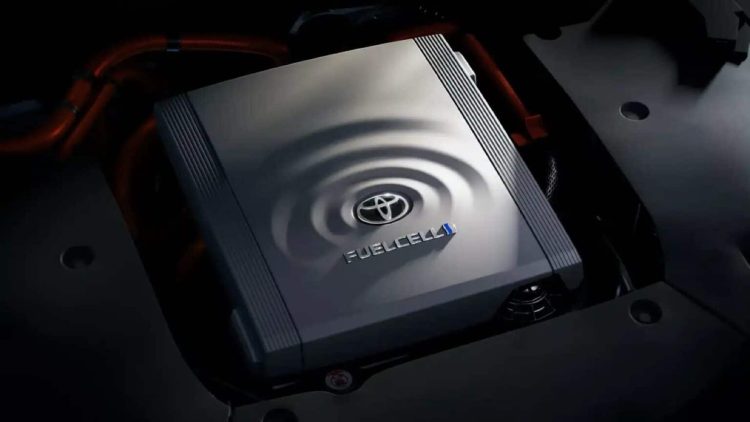Toyota introduced its first-ever hydrogen-powered clean combustion engine to the world. With this innovation, Toyota achieved a leading position in green mobility, presenting electric vehicles with speedier, environmentally friendly competition. Toyota reinvented its sustainability focus through a designed, durable, and high-performance hydrogen engine. The new technology promises to extend into various transportation industries past automobile use. A review of the present and future implications of the recently announced hydrogen-powered engine appears below.
Toyota’s hydrogen engine could outperform EVs and fuel a new competition.
Through its hydrogen-powered engine system, Toyota has created a clean combustion method that operates independently of fossil fuels. The engine system sustains operation with hydrogen, cutting down carbon pollution while maintaining powerful driving capabilities. The vehicle benefits from high reliability through its construction materials, resulting in increased operational efficiency. The latest design innovation exceeds conventional engineering practices while transforming Toyota into an industry leader in sustainable automobile technology.
Hydrogen-powered vehicles are more functional than electric cars because they need less time to refuel and can travel greater distances. Hydrogen-compatible car systems suit people who require easy access and environmentally sound operation. Toyota’s entrance into hydrogen vehicles would trigger other automobile manufacturers to develop hydrogen technology. Worldwide, hydrogen-powered vehicle adoption is becoming faster because rising competition drives down costs.
Despite the promise, Toyota’s hydrogen tech must overcome weak policies and scarce stations.
Advancements in engine design present substantial challenges for Toyota in establishing hydrogen as mainstream fuel technology. The scarcity of adequate governmental ambassadorship and financial incentives is among the main barriers to hydrogen vehicle penetration. The preference for supporting fossil fuel policies through recent policies creates challenges for widespread hydrogen adoption. The complete achievement of Toyota’s innovation depends on uninterrupted support from various parties.
The scarce availability of hydrogen fueling stations remains a fundamental issue because they exist mainly in major cities. To develop a dependable network, significant funding alongside governmental and energy-sector institutions will be required. Hydrogen vehicles will function only in regions where hydrogen fueling stations become more widespread. While hydrogen technology already exists, the supporting infrastructure requirements must be developed further.
Toyota directs its new hydrogen engine development beyond the personal vehicle market. The company continues to investigate the use of this hydrogen system across train lines and ships, as well as trucks and generators. These sectors complement hydrogen’s advantages in power generation and refuelling speed because electric vehicles face limitations. Toyota’s strategic path seeks to develop an entire hydrogen infrastructure alongside its vehicle production.
Toyota plans to expand hydrogen use far beyond passenger vehicles.
The extended forecast reveals Toyota’s plan to cooperate with public agencies and private organizations to enhance infrastructure development and public understanding. Toyota expands its operations to include products beyond automobiles, increasing market demand and justifying fueling network investments. Accelerated industrial adoption seems possible through this approach. Increased hydrogen applications throughout industries provide more substantial support for its commercial viability.
Investments in this technology sector will increase rapidly when society adopts hydrogen nationally. As the hydrogen ecosystem develops, factors that reduce operational costs while boosting operational productivity are established. The approach is a technology protection mechanism for Toyota to defend its innovation domain from becoming obsolete. Innovative strategies for achieving zero-emission energy solutions receive positive reception worldwide through the advancement of cleaner industry operations and future sustainability methods.
The Toyota hydrogen combustion engine represents a transformative business development in the sector. The vehicle offers rapid fueling, emissions-free operation, and wide operational flexibility, which makes it competitive with electric automobiles for daily usage. The company shows dedication to resolving remaining policy and infrastructure issues. A hydrogen strategy covering long-term aspects extends Toyota’s vision past automobile emissions control. A successful deployment of this engine may lead to a transformation in the sustainable transport options of the future.

